Wales Interactive: Leading the New FMV Renaissance

In part 2 of the lengthy and very fun interview I did with Wales Interactive, we discuss the impact of FMV games, and how I believe that the company is at the forefront of an FMV renaissance. You can read part one of the interview here.
[Note: edited for clarity and length]
John: it’s a really interesting space in the sense that David was literally the one who opened the door in this space of what it was. I was a big fan of the books when I was a kid. I mean. Big. Huge, huge consumer. my brother is like 17 years older than my sister so basically it was like a kid with a child at home. these books I loved and devoured them. The choose your own adventure, flight of fancy type books. That was a companion.Sso I’d always kinda dreamed of you know, putting a visual language that I took, I say took, but granted, i work really hard on my films. That I do yearly as the type of filmmaking I’ve always dreamt of. Marrying all the films that I make that have won independent awards and tribeca awards with the space that I was introduced to that continues to be my dream and my aspiration for the space. These can be atmospheric, beautiful art forms. I think we’re just learning the language of the stuff now. It’s exciting to be learning a new language in filmmaking for me because the three act structure of filmmaking is very clear and well-definied and has been written about many times, but this hasn’t at all. No one’s written a book about this. We might. At the end.
DXP: Why wasn’t this just a movie? There’s enough there to make a feature. But you’ve kind of already touched on that. That the interactivity and the mood-building works better in game form. Doctor Banner, you were at Eidos for a while, weren’t you?
Doctor David Banner: Ah, yes, I was there for the birth of Eidos. It wasn’t Eidos. It was a little team and I suppose i was there for Tomb Raider. My first boss was Eidos. I’ve been kicking around the game scene for a long time.
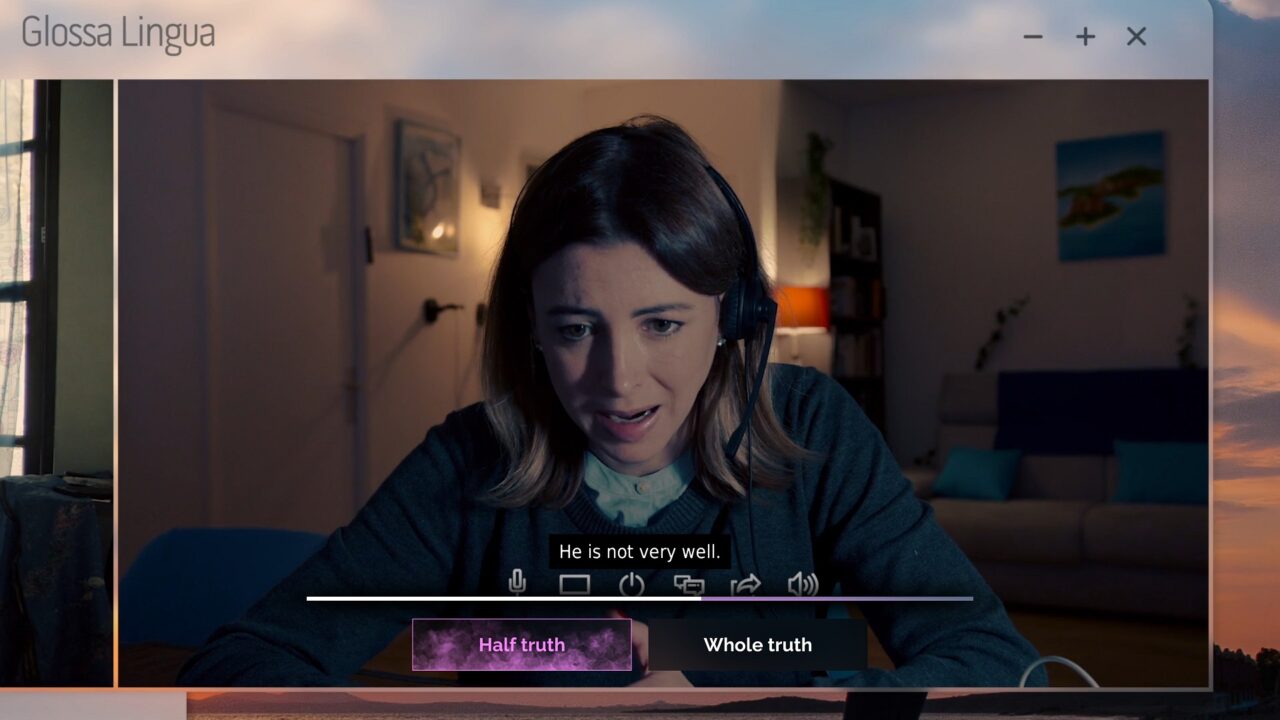
DXP: So do you guys feel good about being at the kinda forefront of this new FMV game rennaissance? I talked about Jed Shepherd, but do you know he’s got an FMV horror coming out next year in February?
Doctor David Banner: I can’t speak for john, but its fairly unusual, even in the video games industry to ever be – you’re normally catching up, normally following – so first to be together leading…it’s…there was never a romantic comedy interactive game until we released 5 Dates together last year. There was never an interactive sci-fi thriller until we released The Complex. At the moment the genre tabs have really increased, Even on Netflix, [they] are filling their own genre tabs. As gamemakers, we’re used to telling interactive stories. So those platforms are gaming platforms. So as well as telling stories, we’re combining building gaming logic, [and] achievements. On average I think people watch interactive [games] at least 5 times. They get involved and they enjoy watching them. There’s a lot more going on than just storytelling in indie productions.
John: We’re trying to constantly give diversity so one of our drivers – and something that Alex was doing really well – was [giving] some distinct paths to people, so there is genuine diversity. I think that’s one of things we’re striving for. how do give your audience as much as possible, that’s genuinely different, without breaking the budget of the films? Of course, everything has a cost implication. Every page that you make you do want to really give as much to the audience as possible, and that’s just one of the things we’re constantly pushing.
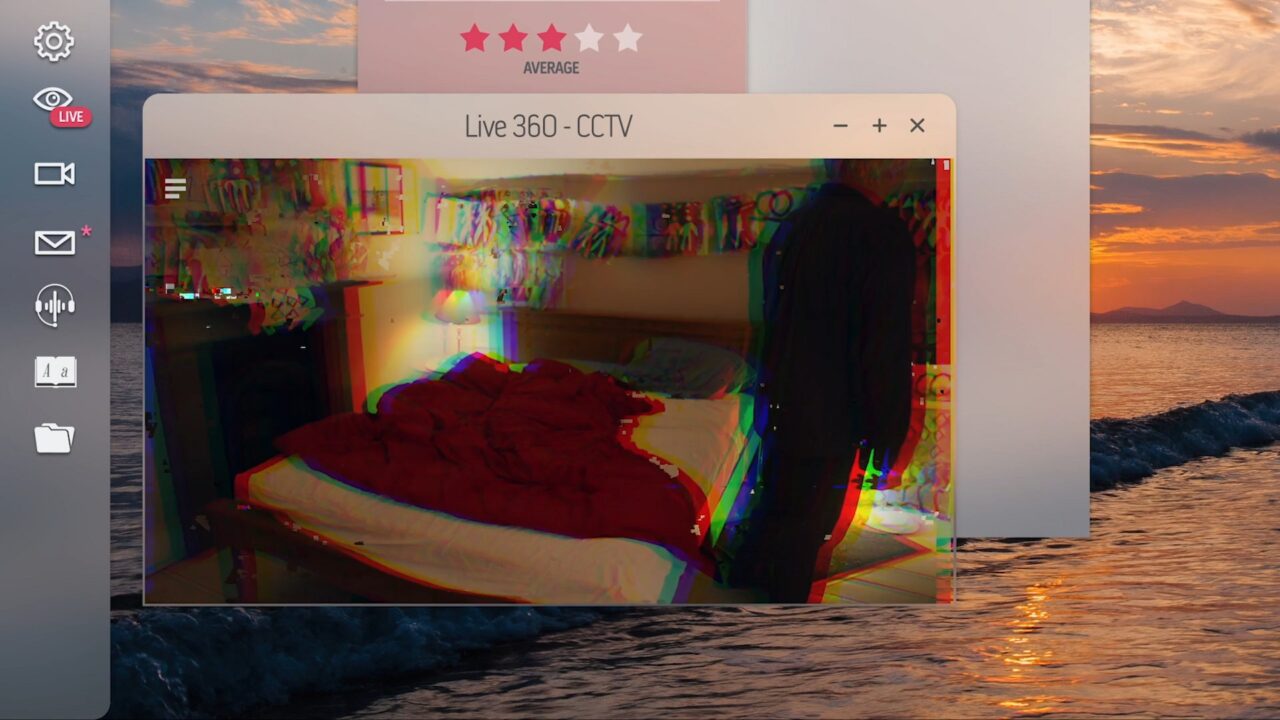
DXP: What’s the production cost like of making a film vs. making a game. Which one is easier on the budget?
Doctor David Banner: Well John comes from filmmaking so his idea of an indie budget is not what indie games is like. 20 million is an indie budget in film. Whereas obviously we know there are [indie] games may be in the span of 100,000 to a million pounds to make. So John’s been set the challenge to operate within these budgets. i think the most expensive one we’ve done is 5 million and the cheapest is literally 100,000 dollars. There’s not one budget. There’s a top, and then there’s a bottom. Both of which tend to be lower than indie film.
DXP: So when directing these actors I noticed what I thought was practical effects, did you have to walk through with your actors how to accomplish these effects?
Alex: yes, absolutely [laughs]. So yes that was a whole level of complexity. So we had some wirework – which sounds more impressive than it is really – just making things dance. We did light changes, lighting cues. A lot of it was kind of augmented with visual effects. The beauty of it is because these actors are great actors, they’ve been around a lot of sets, and they’ve seen all this stuff happening anyway. They’re just the ones doing it now. So, fortunately, it wasn’t completely alien to them. So absolutely we had to talk through all that stuff.
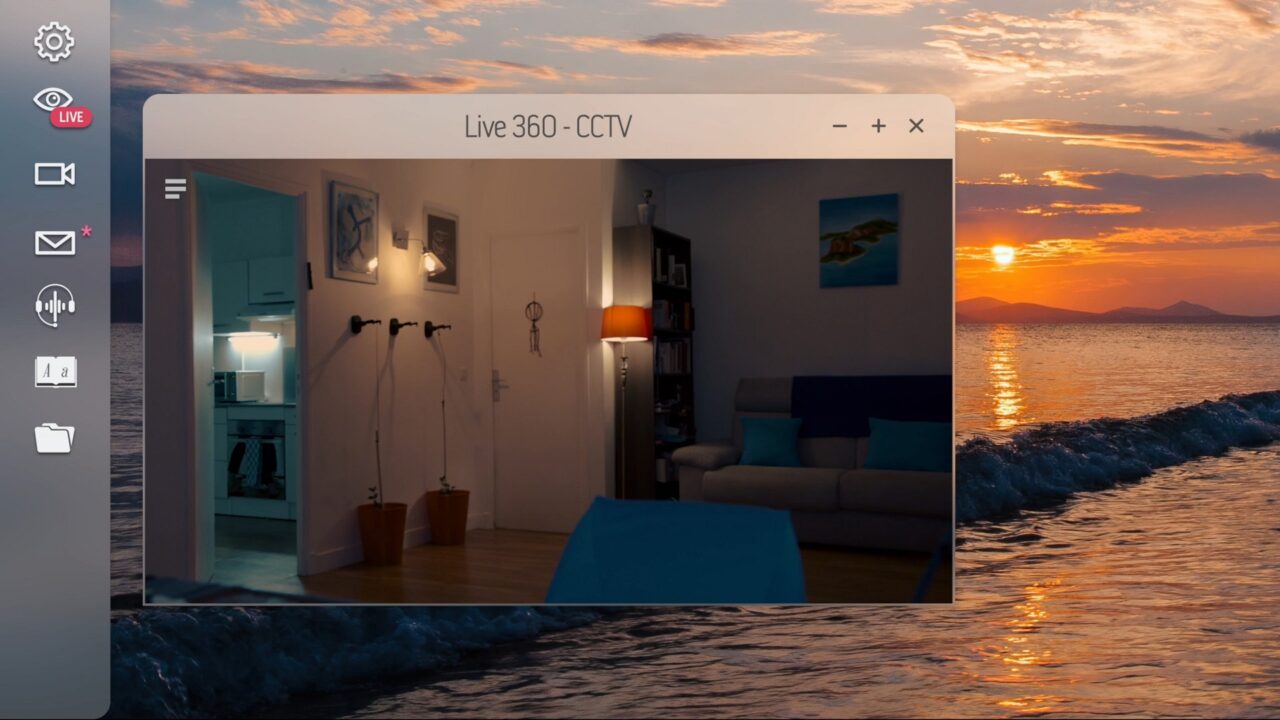
DXP: I noticed the dreamcatcher moving and books falling down and I had to look at through the standpoint of, “I’m playing this for my enjoyment and also to do an interview about”. The cuts to the green filter and the actors thrashing and it comes across as scary to me but also I thought about how it must have been a blast to let the actors go wild and then put a filter on it later.
Alex: if you think about it, they’re in their own space. They would normally have a crew. A crew gives them an audience and immediate feedback, but when you’re doing that alone in a room with someone on a Zoom call. It’s just a different proposition. Slightly weird with neighbors peering through going, “what are they doing?”. So yeah, it kind of approached like… I gestured with them on my end of the call so they didn’t feel like they were alone. just kind of moral support. We had a lot of fun developing the movements surrounding the ideas in the film. Seeing what the monsters were, and what was happening to them. The actors were really amazing at bringing in their own ideas and movement to those experiences. it was a bit strange doing a movement and very physical session with the actor, you know, when they’re in Paris and I’m not. It was a really interesting experience and I’m very happy with the result. it gave something genuinely a bit unusual and energetic which helps particularly when framed as this.
John: We had a very creative cameraman as well who was based out of LA and before the shoot Alex and him were collaborating on, “How do we create that there’s a monster in this and what should that look like?”. Evan, bless him, was in his garage with a tank full of water and moving different types of fabric through water and then filming them at different camera speeds and then compositing that over different scenes and landscapes. We’re doing quite sophisticated camera tests on how to get things looking right. We’re in the UK and Evan was in LA and they were collaborating on those tests from the beginning of pre-production putting that together. This whole year for everyone has been a learning experience. When you get so much taken away. You learn quite a lot, and you could do quite a lot.
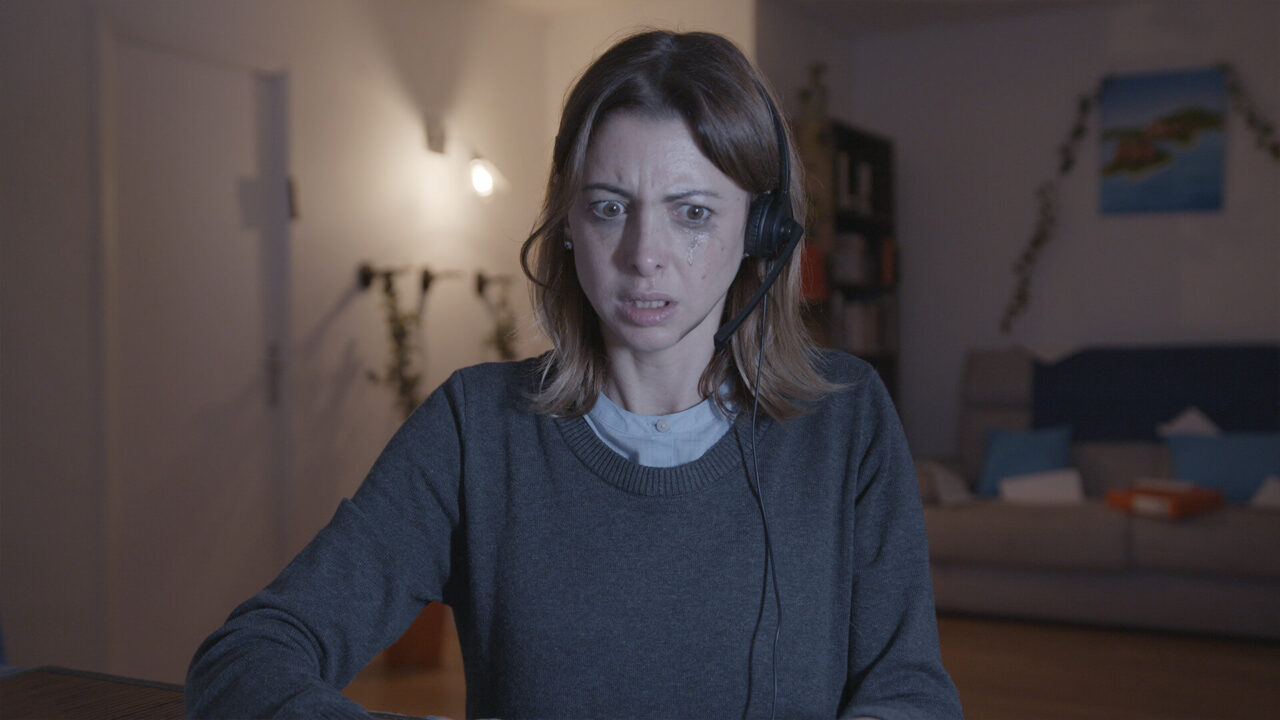
DXP: It’s been a rough year for everyone. What’s production time like vs. a traditional film set? Is it longer, comparable?
Alex: It was really comparable in the end wasn’t it?
John: I think it’s quicker because, for example, Alex isn’t doing as much staging of the actors. There aren’t multiple people on camera at the same time. The lighting is set so you’re not halting and getting lighting re-rigged for a different shot as often. There is a quickness where it is possible – if it’s just dialogue – it’s possible to go through 15, 20 pages whereas on a live-action set, that would be quite tough. Not that it isn’t tough, doing what we do because we weren’t doing that all the time, you have to take breathers to maintain the performance which Alex did a great job on. On a regular film set you might be shooting – if it’s a network drama – you might be shooting 5 pages a day, whereas we’re shooting 15. What was the average page count Alex?
Alex: About 15 to 20. Very much helped by the fact that there’s only one camera angle. you/’re not agonizing over multiple takes of the same action over multiple angles.
John: You rely on your actors to know their stuff. And to your point too, of what is the page count like vs an interactive script. Ours was 550 pages at one point whereas a linear script like The Party, which won Berlin, That’s a 71-minute film which is effectively 71 pages. Now that’s the shortest film I’ve ever shot vs. this is the longest page count I’ve ever shot. Significantly more by 2 or 3 times at least.

DXP: With that high of a page count and that much being filmed, when I checked the ending stats I saw 15 endings and 240 scenes. Do you think there’s going to be anything there that most people won’t see? Something a little bit secret that you shot that most won’t see?
Doctor David Banner: The weird thing about being a games developer is trying to convince filmmakers who are like, “What? they’re not going to see this?”. Game makers are weird. We’re used to making things that people aren’t going to see, which blows filmmaker’s minds. We’re like, “people won’t ever see this ending” and it’s not a great sell. The stats and the achievements help drive people to uncover stuff. They’re indicators to maybe content that you haven’t seen, so you have to go again. Some films if people can’t find all of the easter eggs and there’s one in The Complex that’s basically: You could die really early in the film but only on a second play. It’s things like that. We’re in the community, We give people hints. A lot of people find it. They want everything. they find a way to find it.
DXP: This game feels excellent for couch co-op. Is that something you considered when getting the game together?
Doctor David Banner: Honestly we underestimated the multiplayer aspect. When you think of multiplayer you think of Fortnite and split screens. We didn’t realize what happened by having multiple paths and different outcomes. [and] that someone could enjoy it a second time but without control in a group environment. we built in a streamer mode actually. The first time we did was on a game called Late Shift back in 2017 and Xbox actually brought us in and asked if we’d support Mixer so people could play and others could vote live. So we built-in streamer mode which essentially holds the choice on the screen so you can have a conversation with your audience about what to do. It’s weird. It creates a different experience than letting the film write itself and you can get an ending. You could do that without making decisions. but you could watch it in little installments where you pause and talk with friends. It’s really interesting how that has changed. I suppose film, which is pretty rigid, lets be honest, as long as I’ve known film, there’s a beginning, middle, and end; and whatever the writer director wants you to see and that’s it. We give people different possibilities.
DXP: When I finished it and saw how much I had left to unlock. I knew I’d have to rope in someone to help me on subsequent playthroughs.
Doctor David Banner: I honestly would love to say we’re really clever and planned that, but we’re just gamemaker so we knew to put in acheivements because that’s another mechanism people like to play things for – to achieve stuff – it’s not just about narrative endings. People will want to get platinum on PlayStation so people will get other people involved when they’ve seen it 3 or 4 times and don’t want to watch it again.
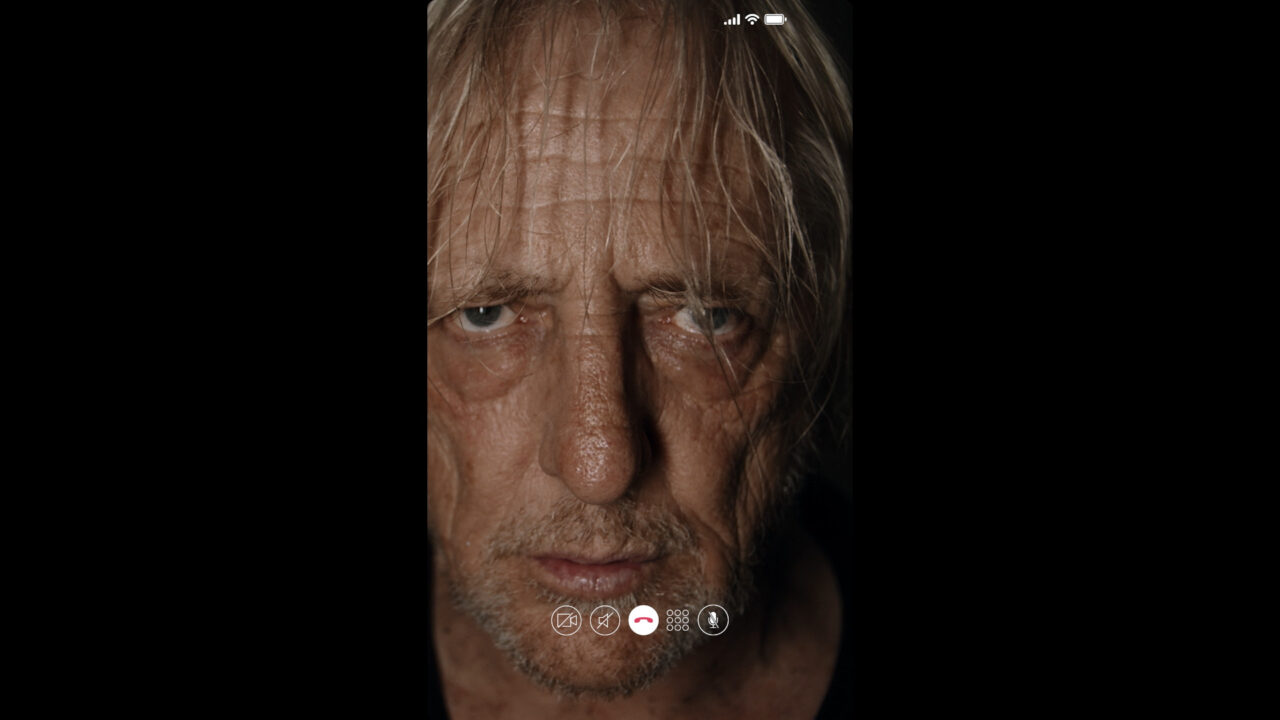
DXP: Is there any chance we’ll see a making of featurette for Night Book?
John: I don’t think we’ve got enough. sadly. it is something that we did on Complex that actually hasn’t been released yet. I’ll show you that sooner or later, David. They’re quite fun to do, making of’s. On this one I was incredibly proud of being able to adapt to the circumstances and being supported by Wales Interactive in what was a creative proposition to make the most of the circumstances we were in. They were very reflexive about greenlighting something that was very much a reaction to circumstances. the access that we had around us. As I was sitting in my house so was Alex and so was David, so was Colin Salmon, Julie cray, all the other actors. We knew that people would want to do something crazy, and want to work. If we just developed an interesting story to Megan Jones. She had this story bubbling away in her head for awhile. She’s been a translator so she brought that to us, which is very earnest, and I’m not sure she’s ever had a demon in her house, but she’s certainly been on a conversation between two people negotiating on a call. it’s what we all look for in stories: A level of authenticity in them, and that’s what Megan can bring to this. That was a part of herself that she brought to it. I’ve been saying for awhile that we should look for something in the horror space and it just kind of coalesced around that, and we knew with things like HOST going, and Unfriended – which did really well. We knew that Searching, which was a massive inspiration for us on this film, won Sundance. Again, it’s done phenomenally well. The idea that you could make something exciting in a Zoom beyond what we’re all used to in these Zoom calls. Something atmospheric and interesting. We knew that was possible, and was attractive to us in that moment.
DXP: Night Book is out July 27, I have to ask though, what’s next?
Doctor David Banner: Oh god. What aren’t we up to? I can tell you that we’re together on a spate so there’s not one thing we’re working on. It’s a range of stuff coming out over the next year or so. We can literally do anything so that’s the nice thing about it. All we thought was that when, for instance those three letters we introduced to john: FMV. And he said, “what’s that?” and I said full motion video. It’s a throwback. […] We get to define how these things are made. We’re making it more professional. The ambition is to make a slate, not just one.
John: We just released [a follow-up to] Deathtrap Dungeon, which is similar to something like Game of Thrones. We’ve been talking to Industrial Light and Magic about doing a show with them. and the Mandalorian with a significantly popular film producer who’s films have made in the billions. We’re aiming to release more, which is quite exciting. We’ve got a series where we’re realizing our deep love of genres. We’ve got all sorts, Scifi, horror, super high concept stuff coming out. […] We’ve got something going with Alex directing which will be in the kind of fun Knives Out. Death in the Nile crime space where there is a murder, but there’s a fun kind of story to go along with that. […] We won’t find another moment like this in our lives again, in truth, because we’re actually at the cutting edge of it. That doesn’t happen very often. Not to be big-headed. it’s been good fortune that David found it how he found it. it’s good to be here. I’ve got expertise in film and we’ve come together and we’re just trying to make the most of the moment.
DXP: Doctor Banner, The Hulk –
Doctor David Banner: Jans, I could get used to this, this is great [laughs] you call me doctor banner and I’m loving this respect right here.
John: MB
Doctor David Banner: MB.
DXP: You said you didn’t want to get a big head about this, but it’s kind of earned. Being right here at the forefront of it, whenever people look back at this weird time in history I feel like they’re gonna say, “well Wales Interactive was making insane FMV games” FMV games are weirdly timeless. You’re making quality games, as opposed to the past’s more corny or bad ones.
Doctor David Banner: We are Wales Interactive, we are a team, so it’s not one person getting a big head. […] We just want to educate them on how to make non-linear stories. we don’t tell our writers how to write the story. They’re complex. What we did was educate them on rules for telling non-linear stories. There are still rules about what people like and what people don’t like. For instance, they like decisions to matter. Little things like that. It’s really nice that we have really sort of embraced it, and working with John, it’s really something he’s embraced as a filmmaker, when initially he was like, “what are you on about?” and now he’s totally embraced it. We’re challenging each other on every project,
John: […] Everyone had a plan for what last year was gonna go like. Like Mike Tyson says, “everyone has a plan until they’re punched in the face”, which is a paraphrase of someone else’s quote. It’s true, everyone got punched in the face last year. The way we reacted to, and tried to get up, from that. Night Book will be the last in the trilogy of these movies; all in different genres. Which is, you know, quite lovely having three jewels in a crown in this period of what we’ve done.
I’d like to thank all three interview subjects for their time and their candor. Night Book is out now and you can pick it up right here.
Categorized: Interviews
